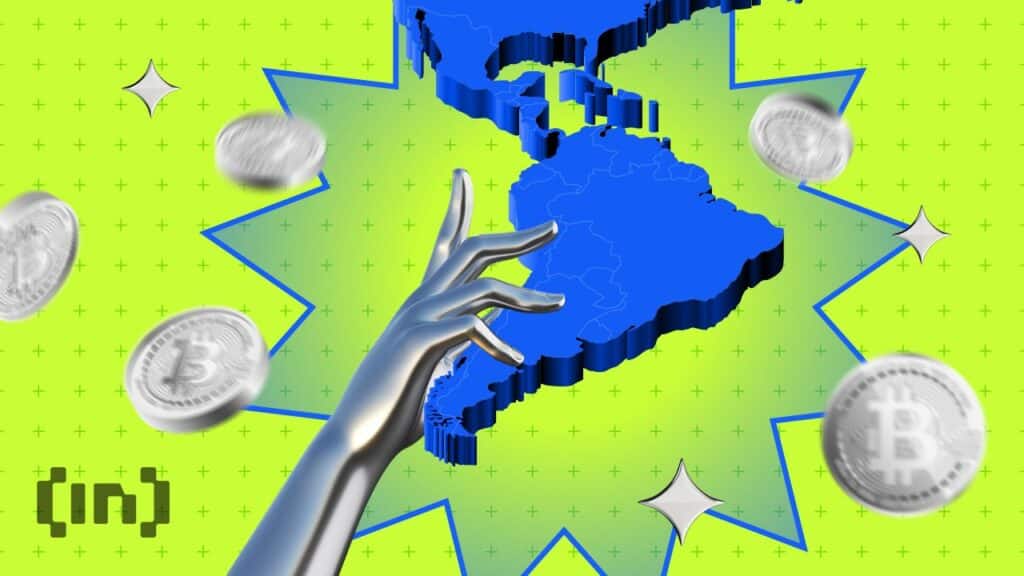Worldcoin extends to Guatemala and more

Latin America (LATAM) continues to prove its growing importance in the global crypto ecosystem. In Colombia, Nexo has joined the fintech association, showing a significant step in regional expansion. Meanwhile, WorldCoin is extending its global identity verification service to Guatemala, addressing digital identity issues in a world dominated by bots.
This article explores these developments and more, including increases in crypto adoption in Bolivia and the development of Brazil's central bank digital currency (CBDC).
Following the lifting of the ban, Bolivian crypto transactions have surged.
Since Bolivia lifted its long-standing ban on digital assets in June 2024, Bolivia has seen rapid growth in cryptocurrency activity. Between July and August, the average crypto trade volume in Bolivia rose to $15.6 million, double the $7.6 million recorded in the first half of the year.
Read more: Crypto Regulation: What are the Pros and Cons?
Stablecoins have emerged as the preferred choice for many Bolivians, providing an alternative for e-commerce and international transactions. BCB President Edwin Rojas highlighted the importance of this change.
“The use of virtual assets is a good step to bring economic integration with the world to modernize and strengthen international trade and financial activities. Since the regulation came into force, the public has an alternative method to process inward and outward transfers and electronic business payments and other activities,” said Rojas.
Despite these benefits, Deputy Marilla Baldiviaso, a cryptocurrency advocate, stressed that more work is needed. Bolivia still has challenges, particularly in the areas of financial literacy and regulatory infrastructure. Baldiviso believes that with a strong educational initiative and clear regulations, Bolivia can be the center of crypto innovation in the future.
Worldcoin expands digital identity services in Guatemala
Worldcoin continues to expand in Latin America with the launch of its World ID verification service in Guatemala. Starting September 25th, Guatemalan users can use Worldcoin's orb technology to verify their identity against the growing threat of online bots. By quickly downloading the World app and making an appointment at one of Orbi's locations, users can verify that their online connections are genuine.
In a recent survey, 83% of Guatemalans expressed concern about distinguishing between human-generated and bot-generated content online. The launch of World ID is seen as a solution to this issue, which provides more security and transparency in digital communications.
WorldCoin's expansion into Guatemala follows earlier launches in Ecuador and Mexico, where the technology has already seen significant interest. However, while WorldCoin is growing in Latin America, it has raised privacy debates in countries such as Argentina, where the threat of biometric data protection has prompted regulatory discussions.
The development of Nexo Eyes in Colombia as a member of the fintech association
On September 26, crypto lending platform Nexo officially joined the Colombian Fintech Association. This partnership will allow Nexo to integrate with Colombia's financial environment and offer digital asset solutions. Joining the association will allow Nexo to further engage with the local fintech community and explore synergies within the sector.
In a statement shared with BeinCrypto, Nexo's Chief Product Officer Elisa Taskova said the partnership with the Colombian FinTech Association demonstrates Nexo's commitment to providing advanced digital asset solutions.
“Colombia offers a unique opportunity: with an impressive 92.1% of the population having access to crypto-related services, the country is making significant progress in digital finance. […] We are not just entering the market; With digital asset tools accessible to millions of Colombians, we are shaping the financial future of Latin America,” said Taskova.
These solutions complement the country's growing stablecoin and secure cross-border transactions. In the last year, Nexo has seen a 73% increase in local customers using its crypto-products. Colombia's interest in cryptocurrencies, particularly stablecoins, is driven by remittances and growing demand for digital financial services.
Paraguay deploys world's first national blockchain to push for sovereignty
Paraguay is developing Legaledger, the world's first third-generation blockchain network with national sovereignty. The Blockchain Chamber of Paraguay drives this initiative, with the aim of providing secure blockchain-based solutions to the public and private sectors. These solutions include financial, civil and military transactions.
According to Riccardo Prieto, director of the Blockchain Chamber, Legaledger is built on Hyperledger technology. It is designed to provide legal certainty in blockchain transactions, to address security and fraud concerns.
“Our blockchain network model is fractal. […] It can be implemented by company, conglomerate, region and country, has the same design, and can work with each other to publish what we call sequencing, the process or the transaction, including global operations,” explained Prieto.
Legaledger aims to position Paraguay as a global leader in blockchain management and innovation, through its sovereign blockchain model. The company plans to expand its solutions globally by 2026.
Brazil's CBCC initiative DREX entered the second phase of development
The Central Bank of Brazil is making progress with its CBCC project – DREX. The institute recently entered the second phase of its DREX pilot program. This chapter focuses on 13 strategic projects that test the feasibility of smart contract-based financial services.
“We also check the use of assets that are not regulated by the central bank. For this, we are working with the Securities and Exchange Commission (CVM). Other regulators have shown interest in checking assets under their jurisdiction to expand the platform's usability,” said Fabio, Brazil's Central Bank's DREX Initiative Coordinator and Advisor to the Department of Banking Operations and Payment Systems. Araujo explained.
The projects cover a wide range of sectors, including international trade finance, real estate transactions and public securities. Major financial players such as Bradesco, Itaú and Santander have driven the development of DREX with a focus on privacy and regulatory compliance.
Read more: What is Fiat Currency? How is it different from Cryptocurrency?
Brazil's push toward CBCC is part of a broader strategy to modernize its financial infrastructure. The country plans to roll out advanced digital solutions by mid-2025.
Disclaimer
Adhering to the Trust Project guidelines, BeInCrypto is committed to unbiased, transparent reporting. This newsletter aims to provide accurate and up-to-date information. However, readers are advised to independently verify facts and consult with experts before making any decisions based on this content. Please note that our terms and conditions, privacy policy and disclaimer have been updated.














